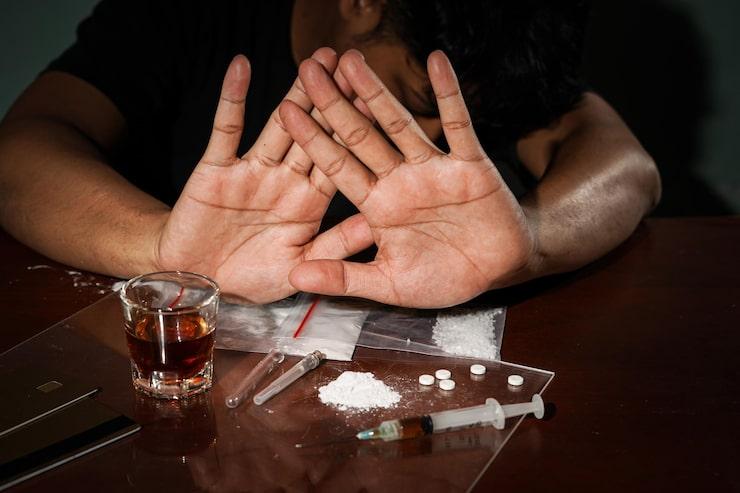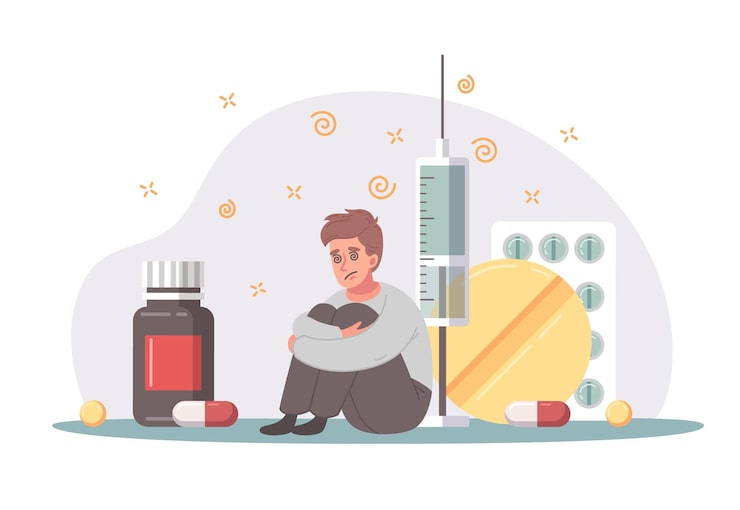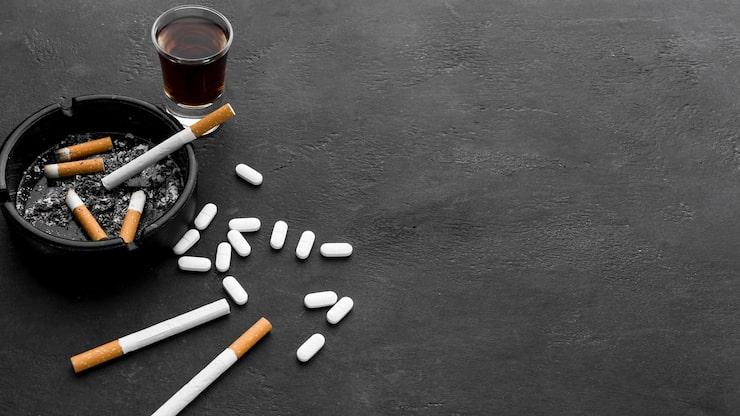
A person refusing addictive substances
People who abuse drugs and alcohol hurt not just themselves but also their families and communities. It can show up in a lot of different ways, such as becoming dependent on alcohol, abusing prescription drugs, or using illegal narcotics. It may seem complicated, or perhaps even impossible, for those who are struggling to improve. However, the truth is that it is possible to recover. Many people restore their lives after abusing drugs and alcohol with the correct medical care, support systems, and personal commitment.
The goal of this blog is to help patients and their families understand the recovery process from substance misuse, the different types of therapy that are available, and how hospitals and rehab programs may help people heal for a long time.
When someone uses drugs, alcohol, or pharmaceuticals in a way that hurts their body, mind, or social life, they are abusing substances. Repeated usage can cause physical dependency and addiction over time. These are conditions in which the body and brain become accustomed to the substance, making it difficult to quit without support.
Some symptoms that someone is abusing drugs are:
Abusing drugs and alcohol affects every element of life, including your health, your mental health, your family, and your social life. Addiction that isn't addressed can cause harm to the liver, heart problems, or alterations to the brain.

An Illustration Of A Man Struggling With Substance Abuse
Recovery is not something that happens all at once; it happens over time. Most people go through a few steps, and healthcare specialists and therapists are there to help them along the way.
1. Recognizing the problem and deciding to get help
The first step is to realize that there is a problem and decide to get help. For many people, this occurs after a personal tragedy or when loved ones encourage them to do so. Hospitals typically offer private screenings to help people understand the severity of their condition.
2. Detoxification (Detox)
3. Rehabilitation (Rehab)
After detox, treatment works on the mental and behavioral parts of addiction. This can be done in:
4. Counseling and therapy
5. Aftercare and support for the long term
Hospitals are essential for people who are trying to get over substance misuse. They offer 24/7 monitoring for medical detox programs.

Substances that they are usually addictive
Sometimes, drugs are given to help with withdrawal symptoms, cravings, or to inhibit the sound effects of drugs. Some examples are:
There are good and bad times throughout recovery. Some common problems are:
Making changes to your lifestyle that strengthen both your mind and body is often part of a successful recovery. These are:
1. How long does it take to become better?
Everyone's recovery is different. Detox can last a week, treatment can last weeks or months, and long-term support might last years.
2. Is it possible for someone to completely heal from addiction?
Yes. Even while there is still a chance of relapse, many people stay sober for a long time with the correct care and help.
3. Does relapse mean you failed?
No. Relapse can occur frequently and is often a part of the recovery process. It shows that the treatment needs to be changed.
4. Is it possible to recover without medication?
For some people, treatment and modifications to their way of life are all they need. For some people, treatment with medication is highly effective. A doctor can help you choose the finest plan.
5. What can families do to help?
Families can go to counseling, learn about addiction, give emotional support, and encourage good habits without letting someone use drugs.
Getting over substance misuse is not easy, but it is a path full of hope, healing, and the chance of a better future. Hospitals are critical because they provide safe medical care, therapy, and long-term support. Anyone can improve with the help of professionals, their family, and their own determination.
No matter how hard it is, help is available, and the best thing a person can do is ask for it.
We offer expert care across key specialties, including Medicine, Cardiology, Orthopaedics, ENT, Gynaecology, and more—delivering trusted treatment under one roof.
Prakash Hospital Pvt. Ltd. is a 100 bedded NABH NABL accredited multispecialty hospital along with a center of trauma and orthopedics. We are in the service of society since 2001.
OUR SPECIALITIES
Contact Us
D – 12A, 12B, Sector-33, G. B. Nagar, Noida, Uttar Pradesh 201301
+91-8826000033

© 2026 All rights reserved.
Designed and Developed by Zarle Infotech